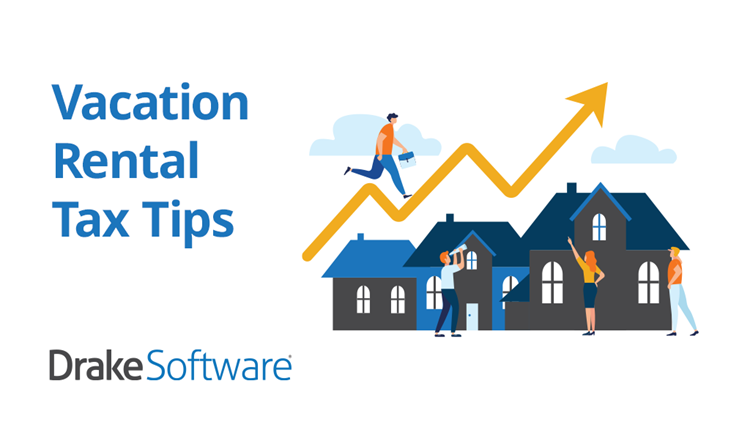Vacation Rental Tax Tips for Tax Professionals

As summer travel heats up, many taxpayers turn their second homes into short-term rentals. While the extra income can be lucrative, it also introduces a complex mix of tax rules that require attention from seasoned tax professionals.
If your clients own or are considering listing a vacation rental, here are key tax tips to keep in mind for the coming tax season and beyond.
1. Determine Rental Property vs. Personal Use
The IRS applies different rules depending on how many days the property is rented vs. used personally.
- 14-Day Rule: If the property is rented out for fewer than 15 days during the year and used personally for more than 14 days (or more than 10% of the total days it’s rented), the rental income is not taxable, but expenses aren’t deductible either.
- Mixed-Use Property: If it exceeds the 14-day threshold, it’s considered a vacation home, and income must be reported. Expenses must be allocated between personal and rental use.
Tip: Advise clients to keep meticulous records of personal vs. rental days to properly apply deductions.
2. Understand Deductible Expenses
Vacation rental owners can deduct business expenses, including:
- Mortgage interest
- Property taxes
- Insurance
- Depreciation
- Utilities and maintenance
- Management and cleaning fees
- Advertising costs
However, if the property is also used personally, these expenses must be prorated accordingly.
3. Be Cautious with Depreciation
Vacation homes must be depreciated over 27.5 years, assuming they’re classified as residential rental property. This is often overlooked, especially when clients switch from personal to rental use mid-year.
4. Report Income Properly
Thanks to the American Rescue Plan Act, starting in 2023, platforms like Airbnb® and VRBO® must issue Form 1099-K if total transactions exceed $600. Clients may receive one even for a small number of bookings.
- Report rental income on Schedule E (Form 1040).
- Watch for underreporting when clients forget to include direct payments received outside the platform.
5. Local Tax Considerations
Many jurisdictions levy lodging or occupancy taxes on short-term rentals. Ensure clients are collecting and remitting these if not handled automatically by the platform.
Encourage clients to check with local tax agencies for compliance requirements beyond federal taxes.
6. Plan Ahead for Estimated Taxes
Short-term rental income may not have tax withheld automatically. Clients may need to make quarterly estimated payments to avoid underpayment penalties—especially if rental income is substantial or seasonal.
As vacation rentals continue to grow in popularity, tax professionals are uniquely positioned to help clients navigate compliance while maximizing deductions.
By staying informed and using the right tools, you can guide your clients through the summer rental season without surprises next tax season.
Get a head start on tax season—download our free client checklist to gather everything you need from clients as early as possible.
To get more tax tips, subscribe to our blog, Taxing Subjects®.
All trademarks not owned by Drake Software, LLC ("Drake") that appear in this blog are the property of their respective owners, who are not affiliated with, connected to, sponsoring, or sponsored by, Drake.




